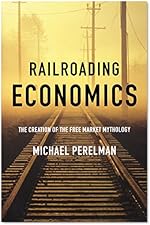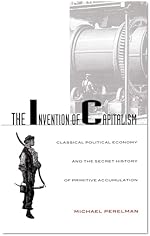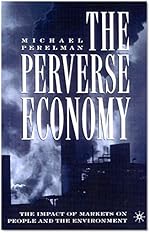Archive for July, 2009|Monthly archive page
Three Notes on Budgetary Priorities
At the time that my university system faces almost half a billion dollars (yes, with a B) in budget cuts, I have felt the need to rant about budget priorities. As Joseph Schumpeter wrote: “the budget is the skeleton of the state stripped of all misleading ideologies.”
People outside of California could not possibly comprehend the perverted logic of our prison system, which consumes more of the budget than state support of higher education. The number of public needs that deserve serious funding is enormous. The most ridiculous waste of money is the military.
I intended to write today about the military budget, going beyond Joseph Stiglitz and Linda Bilmes’s estimate of the $3 trillion dollar war, looking at the harm done to and by veterans, over and above the medical costs that Stiglitz and Bilmes count.
I had planned to begin with Dave Philipps’ articles on the how the war experience has screwed up soldiers’ minds. He documents a rash of murders occurred near Fort Carson, Colorado. The murderers are from a small unit that experienced exceptionally heavy fighting and casualties. This morning I was pleasantly surprised to hear Philipps interviewed on Democracy Now, going into more detail.
The next note will point to the problem of homelessness among veterans.
The final note will note the recent discovery that Agent Orange did more harm to veterans health than previously recognized. I suspect that more information about Gulf War Syndrome will trickle in.
Continue reading
How Norton Antivirus Sucks?
I just got back from a trip, where I got hit with the Virtuemonde virus. Norton never even picked it up. When I contacted Norton, they told me that they would escalate the problem, which I learnt meant paying Norton $99 to fix it.
Fortunately, Malwarebytes, along with Spybot, fixed it. I wonder what Norton actually does except slow down my computer.
Jack Welch: The Former Car Czar’s Vision
Last month, Steven Rattner told the New York Times that Jack Welch was his model for leadership in GM. I suspect that he is sincere.
“Mr. Rattner said he expects no less than the kind of wholesale restructuring that John F. Welch Jr. engineered at General Electric in the 1980s, where he decisively shed businesses, cut costs and jobs and demanded better performance.”
What is weird is that much of GE’s success came from shedding manufacturing and increasing the emphasis on finance. Not only did Neutron Jack callously pull the rug from under many people, but GE is also on the public dole.
So, here is GM attempting to become profitable by shedding jobs, breaking workers’ contracts, … Enough to make Jack Welch proud.
Maynard, Micheline. 2009. “U.S. Takes On the Insular G.M. Culture.” New York Times (11 June).
http://www.nytimes.com/2009/06/11/business/11auto.html?_r=1&scp=2&sq=rattner&st=cse
An Idiosyncratic Road to Crisis Theory
As an undergraduate, introductory microeconomics didn’t make any sense. After a few weeks, I realized that it was easy to get a good grade until by working backwards. Since the goal was to show that everything worked out perfectly, all you have to do on an exam is to start with the answer that the market creates the best outcome, then work backward to figure out what would make it occur. Economics soon became my easiest class. Although I do not follow that procedure anymore, I am convinced that much of the economics profession still does.
Eventually, some seemingly obvious questions began to trouble me. Economics, which purports to explain the nature of a capitalist system motivated by profit maximization, lacks a theory of capital as well as any coherent explanation of the determination profits. One of reasons is simple: economics generally deals with a static conception of the world, yet fixed capital, which becomes increasingly important with the maturation of capitalism, calls out for a dynamic analysis, even with a static conception of the world.
Read more here
Contracting Out, Or Boeing Bites Itself on the Butt
Boeing is having a great deal of difficulty in constructing its new airplane. These problems remind me of the work of Ronald Coase.
In 1991, Coase won the misnamed Nobel Prize for economics, largely on the basis of two articles. In one of these, Coase explored the nature of the firm, “distinguishing mark” of which is the “the suppression of the price mechanism.”
Coase, Ronald. 1937. “The Nature of the Firm.” Economica, 4: 386-405, p. 389.
To some, at first glance, such words might suggest a radical Marxist ideology — “suppressing the price system”. In fact, Coase saw something that earlier economists had overlooked. Business transactions between firms are based on prices, but, within a business orders and procedures generally determine how things are done, not prices.
At the same time, a business can theoretically contract out virtually everything it does. A major corporation could consist of a telephone, an Internet connection, and a bank account. It could rent its office and make contracts with employees on a daily basis. It could pay other companies to produce and market its goods.
No major company has ever gone that far because of the difficulty of specifying everything it needed in contracts. Yet, in the new age of neoliberal worship of markets some corporations have actually made great strides toward creating a totally market-driven business. A few corporations have even taken to using prices within the firm in an effort to make each division accountable. Continue reading
New Interview with Michael Perelman
Seth Sandrosky published a very nice interview with me.
Intellectual Property vs. Global Warming
The damage done by intellectual property goes well beyond the prevention of the downloading of music. Yesterday’s story about a Goldman Sachs employee downloading proprietary information was not exactly an example of a violation of intellectual property laws, but rather a theft of trade secrets — perhaps a distinction without a difference.
Below, is a story about Toyota, supposedly benign force in the green economy by virtue of the Prius. Here is another side of the story in which Toyota is using intellectual property to make competition difficult.
One might be sympathetic to Toyota you were selling socks or toothpaste, but global warming seems to be too important to be gamed by such shenanigans.
Murphy, John. 2009. “Toyota Builds Thicket of Patents Around Hybrid To Block Competitors.” Wall Street Journal (1 July): p. B 1.
“The Obama administration’s tough new fuel-efficiency standards could pose problems for some car makers, but Toyota Motor Corp. is hoping to benefit. The Japanese company is betting the rules will give an advantage to its expanding lineup of hybrid vehicles, and it also aims to boost revenue by licensing to other car makers the patents that protect its fuel-saving technologies. Since it started developing the gas-electric Prius more than a decade ago, Toyota has kept its attorneys just as busy as its engineers, meticulously filing for patents on more than 2,000 systems and components for its best-selling hybrid. Its third-generation Prius, which hit showrooms in May, accounts for about half of those patents alone. Toyota’s goal: to make it difficult for other auto makers to develop their own hybrids without seeking licensing from Toyota.”
Back from China
I have been back from China for a week, and only now getting my head above water. The trip, which consisted of giving talks at various universities and meeting with students and faculty, was very exciting. The Chinese are pouring money into higher education at the same time as cutbacks are the order of the day here in the benighted USA.
The students are very impressive, although some of the faculty tend to restrict the more creative urges of some of the students. Continue reading
 Comments (1)
Comments (1)
 25 – The Confiscation of American Prosperity: From Right-Wing Extremism and Economic Ideology to the Next Great Depression
25 – The Confiscation of American Prosperity: From Right-Wing Extremism and Economic Ideology to the Next Great Depression 30 – Manufacturing Discontent: The Trap of Individualism in Corporate Society
30 – Manufacturing Discontent: The Trap of Individualism in Corporate Society Class Warfare in the Information Age
Class Warfare in the Information Age Railroading Economics: The Creation of the Free Market Mythology
Railroading Economics: The Creation of the Free Market Mythology Steal This Idea: Intellectual Property Rights and the Corporate Confiscation of Creativity
Steal This Idea: Intellectual Property Rights and the Corporate Confiscation of Creativity The Invention of Capitalism: Classical Political Economy and the Secret History of Primitive Accumulation
The Invention of Capitalism: Classical Political Economy and the Secret History of Primitive Accumulation The Perverse Economy: The Impact of Markets on People and the Environment
The Perverse Economy: The Impact of Markets on People and the Environment